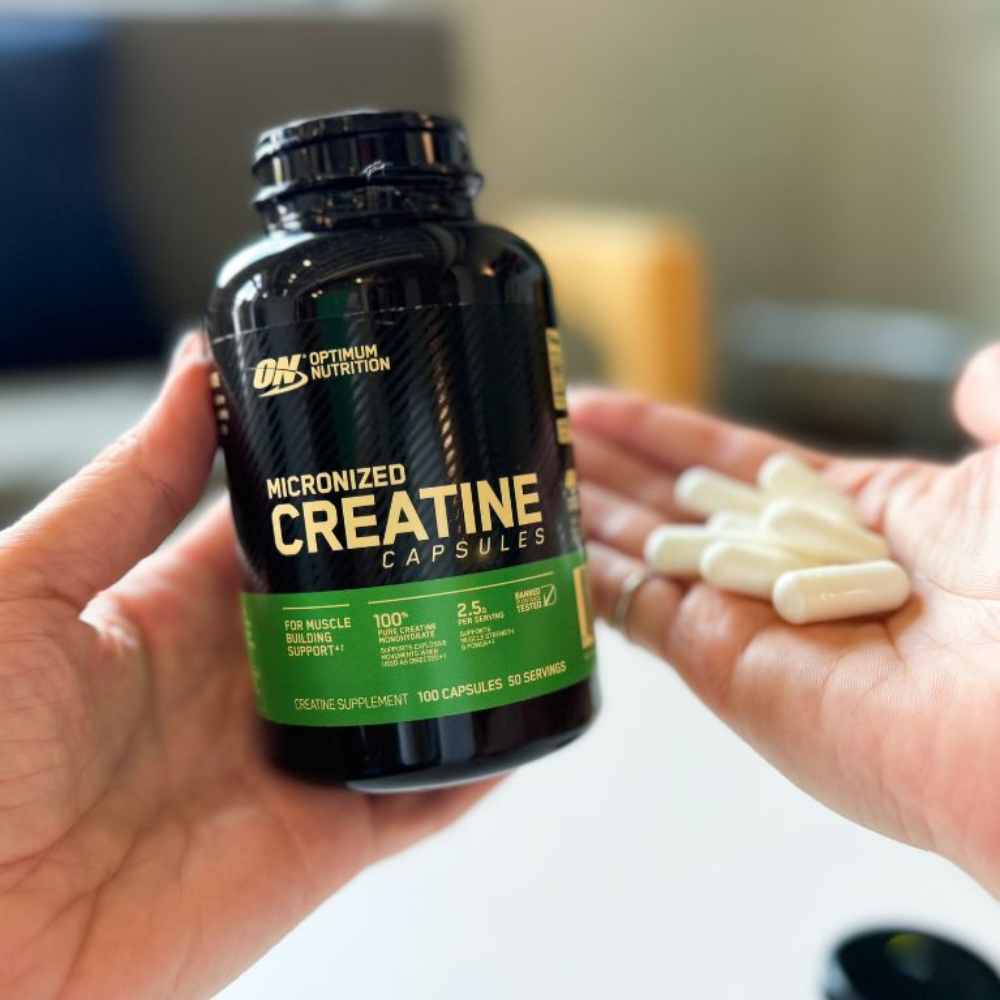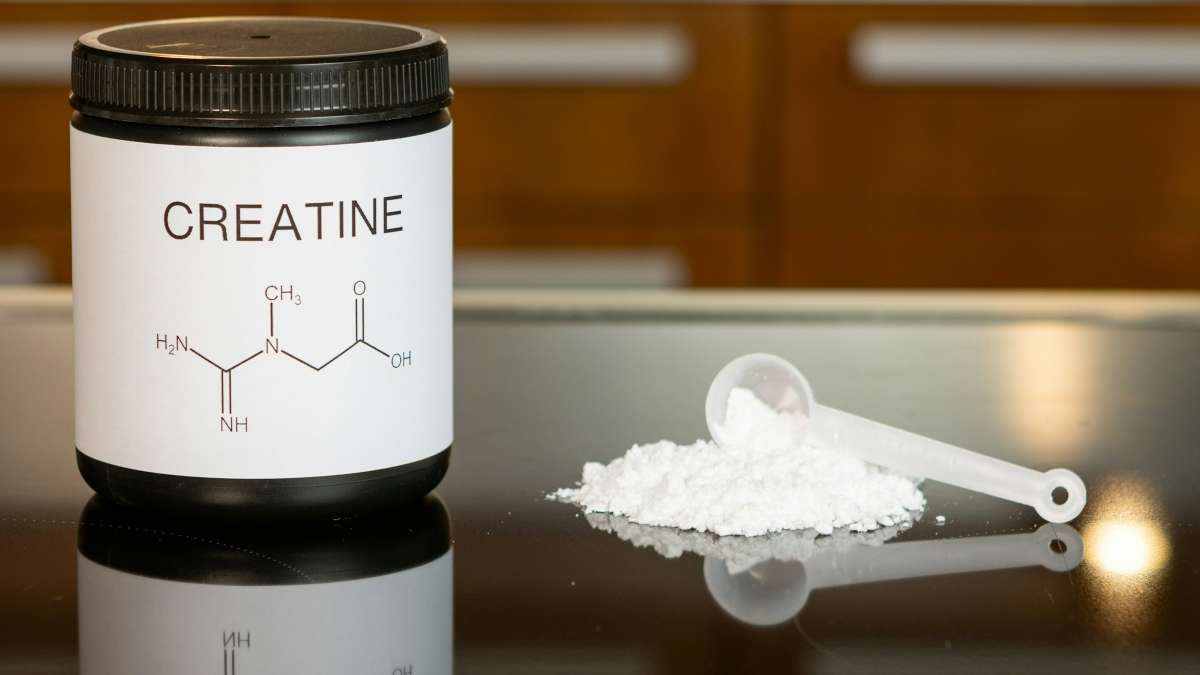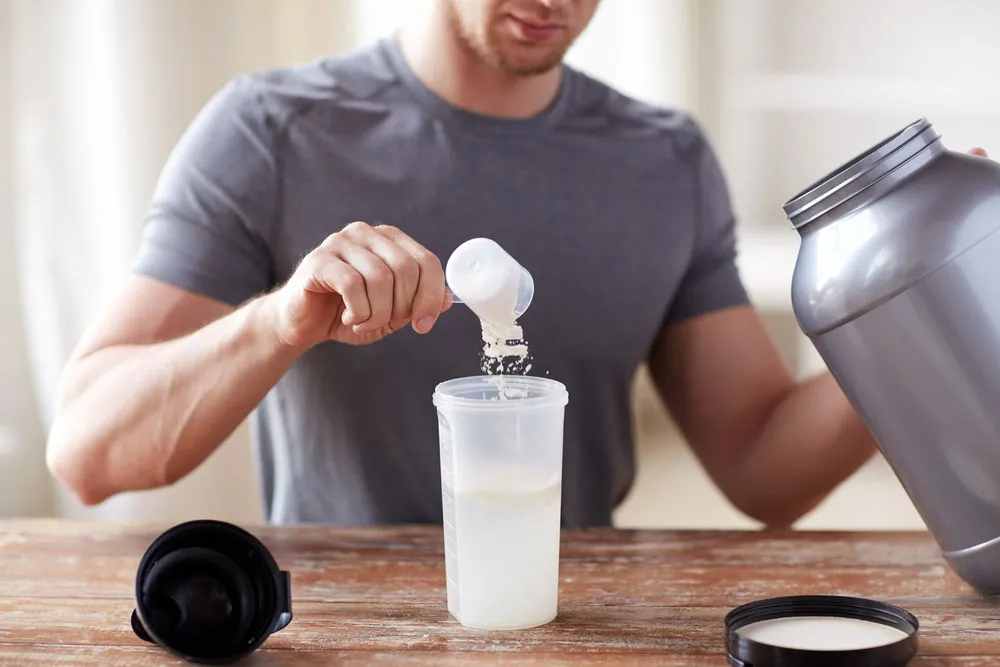
The Science Behind Creatine and Its Benefits
Creatine is one of the most regularly used supplements in sports nutrition. It increases muscle activity and strength, which is why athletes and fitness enthusiasts love it. But what exactly is creatine, and what does it do? This blog covers the science of creatine in-depth, the perks it can provide, and why it is a top-tier strength supplement.
Creatine is a natural compound in small quantities in our bodies’ foods. It assists in producing adenosine triphosphate (ATP), the primary source of cellular energy. This surge of energy is fantastic for shorter bursts of high-intensity training, which is why creatine has become popular among those looking to improve their athletic performance.
Key Benefits / Why It Matters

Enhancing Muscle Performance
Creatine monohydrate is highly valued for its impact on muscle performance. It increases ATP availability, allowing for more intense and longer workouts. This leads to better performance in activities that need quick, explosive energy, such as weightlifting, sprinting, and high-intensity interval training.
Research shows creatine is effective in boosting muscle performance. A study in the Journal of Strength and Conditioning Research found that participants who took creatine had significant gains in muscle strength and power compared to those who didn’t. This improvement benefits competitive athletes and anyone wanting to make the most of their workouts.
Building Strength and Muscle Mass
Creatine also helps with muscle growth. It draws water into muscle cells, increasing cell volume. This process, called cell volumization, sparks cellular activities that promote protein synthesis and muscle growth.
Moreover, creatine affects genes involved in muscle growth. Studies show that it can raise insulin-like growth factor 1 (IGF-1) levels, a hormone essential for muscle development. Therefore, people who take creatine often see more significant increases in muscle mass than those who do not.
Supporting Cognitive Function
Creatine is mostly linked to physical performance, but research hints at cognitive benefits, too. The brain, like muscles, needs ATP for energy. By boosting ATP production, creatine may improve cognitive function, especially in tasks that require quick thinking and focus.
A study from the University of Sydney found that creatine helped improve working memory and intelligence in vegetarian participants. This suggests that creatine’s benefits may extend beyond physical fitness and strength.
Step-by-Step Guide / Actionable Insights
Understanding Creatine Supplementation
Choosing the Right Form
Creatine monohydrate is the most researched and recommended type. It has high bioavailability, meaning the body absorbs it quickly. Other forms like creatine ethyl ester and creatine hydrochloride exist but don’t have the same research support.
Dosage and Loading Phase
Experts suggest starting with a loading phase to get the most from creatine. This means taking about 20 grams daily for the first 5-7 days, followed by a maintenance dose of 3-5 grams daily. This loading phase saturates muscles with creatine for faster results.
Timing and Absorption
When you take creatine, it can also matter. Some studies say taking it post-workout helps absorption, but timing’s impact is negligible. The key is consistency. Taking creatine simultaneously daily helps set a routine and ensures the best results.
Additional Expert Tips & Common Mistakes to Avoid

Staying Hydrated
A common mistake with creatine is not staying hydrated. Since creatine pulls water into muscle cells, drinking enough water is vital. Not doing so can lead to dehydration and reduce the supplement’s effectiveness.
Avoiding Overconsumption
Creatine is safe when taken as recommended, but too much can cause stomach issues and other side effects. Stick to the dosage guidelines and check with a healthcare professional for concerns.
Advanced Insights / Expert Recommendations
Combining Creatine with Other Supplements
Combining creatine with other supplements can boost results. For example, pairing creatine with beta-alanine can enhance endurance and reduce fatigue during intense workouts.
Long-Term Use and Cycling
Creatine is safe for long-term use, but some people choose to cycle it. This means taking creatine for a set time (8-12 weeks) followed by a break. Cycling can help prevent the body from relying too much on the supplement and keep its effectiveness.
Unlocking the Full Potential of Creatine

Creatine monohydrate is a well-researched, effective supplement with wide applicability. It improves muscle function, increases strength, promotes growth , and may also aid cognition. Understanding creatine and best practices for supplementation will help you unlock its full potential and attain your fitness goals.
If you’re starting your fitness journey, consider including creatine. Keep researching, talk to professionals when necessary, and be consistent to benefit from this incredible supplement.
Then, are you ready to perform better than you ever have and take your fitness to the next level? Find out how creatine monohydrate can improve your training and much more!


